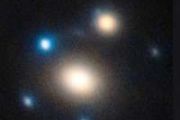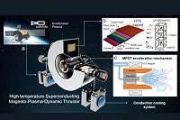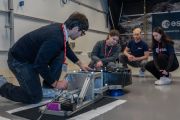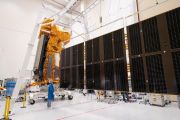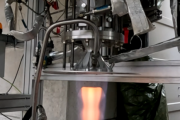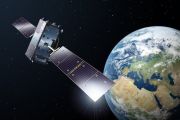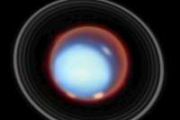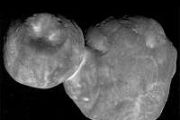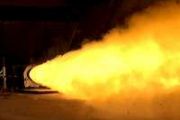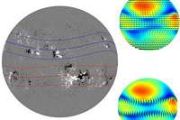
Copernical Team
LUCI optical terminal to link satellites for France 2030 space program
 Oledcomm is developing a new optical terminal called LUCI to provide inter-satellite communications for the French space agency CNES within the France 2030 program. The company, which focuses on wireless optical links, will build and demonstrate a bidirectional inter-satellite service using this compact terminal for the program's space component.
LUCI, short for Ultra-Compact Inter-Satelli
Oledcomm is developing a new optical terminal called LUCI to provide inter-satellite communications for the French space agency CNES within the France 2030 program. The company, which focuses on wireless optical links, will build and demonstrate a bidirectional inter-satellite service using this compact terminal for the program's space component.
LUCI, short for Ultra-Compact Inter-Satelli Spire and Planet expand satellite fleets on Transporter 15 mission
 Spire Global Inc and Planet Labs PBC have each reported new satellite deployments on SpaceXs Transporter 15 rideshare flight from Vandenberg Space Force Base in California, expanding commercial constellations focused on Earth observation, weather, and radio frequency data.
Planet confirmed that its AI enabled high resolution Pelican 5 and Pelican 6 satellites reached orbit alongside 36 Sup
Spire Global Inc and Planet Labs PBC have each reported new satellite deployments on SpaceXs Transporter 15 rideshare flight from Vandenberg Space Force Base in California, expanding commercial constellations focused on Earth observation, weather, and radio frequency data.
Planet confirmed that its AI enabled high resolution Pelican 5 and Pelican 6 satellites reached orbit alongside 36 Sup High-resolution radar satellites launched for Greece

Thanks to the EU-funded Recovery and Resilience Facility, and through collaboration between the Greek government, the private satellite company ICEYE and the European Space Agency (ESA), two new high-resolution radar satellites have been launched to strengthen disaster management, environmental monitoring and national security across Greece.
Italian mission adds to growing IRIDE space fleet

The Italian programme IRIDE, which provides public sector services based on data from its fleet of Earth observation constellations, has added eight satellites to its second constellation, Eaglet II.
ESA’s HydroGNSS mission launched to ‘scout’ for water

The European Space Agency’s first Scout mission, HydroGNSS, was launched today, 28 November, marking a significant step in advancing global understanding of water availability and the effects of climate change on Earth’s water cycle.
The two twin HydroGNSS satellites were carried into orbit at 19:44 CET aboard a SpaceX Falcon 9 rocket, as part of the Transporter-15 rideshare flight from the Vandenberg Space Force Base in California.
Local space weather impacts on technology and safety vary more than expected
Verifying that you are not a bot
ESA’s HydroGNSS mission lifts off
 Video:
00:02:27
Video:
00:02:27
ESA’s first Scout mission, HydroGNSS, was launched on 28 November 2025, marking a significant step in advancing global understanding of water availability and the effects of climate change on Earth’s water cycle.
The two twin HydroGNSS satellites were carried into orbit aboard a SpaceX Falcon 9 rocket from the Vandenberg Space Force Base in California, US.
Embracing the New Space concept, HydroGNSS is one of ESA’s new Scout missions being developed within the Earth Observation FutureEO programme.
Replay: HydroGNSS launch coverage
 Video:
01:45:00
Video:
01:45:00
ESA’s first Scout mission, HydroGNSS, was launched on 28 November 2025, marking a significant step in advancing global understanding of water availability and the effects of climate change on Earth’s water cycle.
The two twin HydroGNSS satellites were carried into orbit aboard a SpaceX Falcon 9 rocket from the Vandenberg Space Force Base in California, US.
Embracing the New Space concept, HydroGNSS is one of ESA’s new Scout missions being developed within the Earth Observation FutureEO programme.
CM25: A historic step forward for Europe’s space technology leadership

The ESA Council at Ministerial Level (CM25) delivered a record-breaking €22.1 billion in commitments from Member States. This is a historic achievement and a clear signal of trust in ESA’s ability to deliver success through expertise and innovation.
HydroGNSS launch highlights
 Video:
00:02:51
Video:
00:02:51
ESA’s first Scout mission, HydroGNSS, was launched on 28 November 2025, marking a significant step in advancing global understanding of water availability and the effects of climate change on Earth’s water cycle.
The two twin HydroGNSS satellites were carried into orbit aboard a SpaceX Falcon 9 rocket from the Vandenberg Space Force Base in California, US.
Embracing the New Space concept, HydroGNSS is one of ESA’s new Scout missions being developed within the Earth Observation FutureEO programme.





